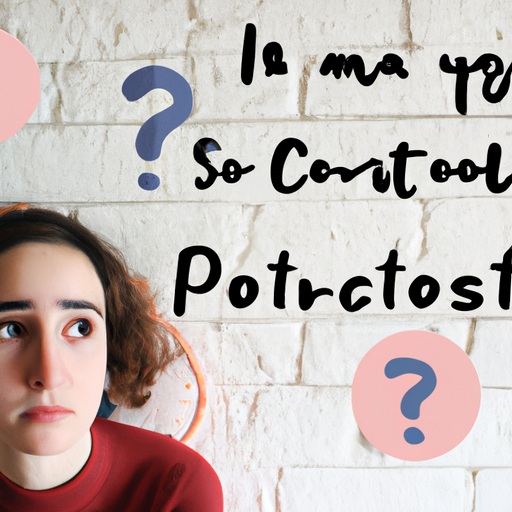Uncategorized
Is it Possible to Have PCOS Despite Regular Menstrual Cycles?
- Polycystic Ovary Syndrome (PCOS) and Menstrual Irregularities
- Diagnosing PCOS with Regular Periods
- Why PCOS Affects the Menstrual Cycle
- Other Symptoms of PCOS
- What Having PCOS with a Regular Cycle Means for Fertility
- Treating PCOS
- Lifestyle Changes that Help Manage PCOS
- The Lowdown
- Polycystic Ovary Syndrome (PCOS) and Menstrual Irregularities
- Diagnosing PCOS with Regular Periods
- Why PCOS Affects the Menstrual Cycle
- Other Symptoms of PCOS
- What Having PCOS with a Regular Cycle Means for Fertility
Polycystic Ovary Syndrome (PCOS) and Menstrual Irregularities
Diagnosing PCOS with Regular Periods
Why PCOS Affects the Menstrual Cycle
Other Symptoms of PCOS
What Having PCOS with a Regular Cycle Means for Fertility
Treating PCOS
Lifestyle Changes that Help Manage PCOS
The Lowdown
Updated atApril 6, 2023Written byHealthMatch staff
Polycystic ovary syndrome (PCOS) is a common endocrine disorder and a leading cause of female infertility. The condition is usually diagnosed based on the following three criteria: irregular, infrequent, or absent periods; high androgen levels; and enlarged ovaries that contain multiple cysts. PCOS diagnosis is dependent on observing two out of three criteria. This means you don’t have to have irregular, infrequent, or absent periods to be diagnosed with the condition. If you have high androgen levels and enlarged ovaries with cysts, you can be diagnosed with PCOS even if your menstrual cycle is regular.
Polycystic Ovary Syndrome (PCOS) and Menstrual Irregularities
PCOS is characterized by reduced fertility, elevated androgen levels, and multiple small cysts on the ovaries. Having irregular periods (oligomenorrhea) is a common symptom of the condition. This is typically defined as a cycle time of 35 days or more in adults and 40 days or more in adolescents. Irregular periods are common in adolescents, particularly in the first few years after menarche. Teens often don’t settle into their adult cycle for about 2–3 years after starting their periods. Having irregular menstrual cycles during this time doesn’t necessarily signify a medical issue. In addition, having irregular periods is not a universal PCOS symptom. Some people with PCOS actually have a relatively regular menstrual cycle.
Diagnosing PCOS with Regular Periods
Diagnosing PCOS can be challenging. Studies indicate that more than half of all people with PCOS are not diagnosed. Your doctor may not consider PCOS as a possible diagnosis if you have regular periods. This could make it harder for you to get the right diagnosis that explains your other symptoms. However, you will likely have other PCOS symptoms, including acne and oily skin, male pattern hair loss, and excess hair growth. Testing for androgen levels is an important part of diagnosis. Your doctor may also look for cysts on your ovaries by carrying out an ultrasound.
Why PCOS Affects the Menstrual Cycle
Two hormones produced in the pituitary gland are involved in regulating the length of the menstrual cycle: follicle-stimulating hormone (FSH) and luteinizing hormone (LH). People with PCOS have too much LH and too little FSH. This causes eggs to develop improperly, and often, these abnormal eggs are not released from the ovaries. After ovulation, progesterone is normally released from a structure called the corpus luteum. This forms from the remains of a follicle after the egg inside it has been released. The corpus luteum won’t form if you don’t ovulate. The progesterone released by the corpus luteum causes the uterus to build up a thicker lining. Later, when the corpus luteum stops making progesterone, the drop in progesterone levels triggers menstruation. Because people with PCOS don’t ovulate, they may not form a corpus luteum. This means that the signal that causes the uterus to build up a lining and then shed it will not occur. You won’t have a period without this.
Other Symptoms of PCOS
Not everyone with PCOS experiences the same symptoms. Other symptoms may include oily skin, male pattern hair loss, and excess hair growth. These are all signs of increased androgen levels.
What Having PCOS with a Regular Cycle Means for Fertility
You can have periods even if you’re not ovulating. Some people with PCOS have regular periods, but they may not be ovulating every cycle. Or, they may not be ovulating at all. Some people with PCOS who have regular periods don’t find out about their condition until they’re trying to get pregnant. When they have trouble conceiving, they may seek a medical evaluation that reveals they have PCOS. If you have PCOS with a regular cycle, you may or may not experience infertility. About 70–80% of all women with PCOS experience infertility.

 Skip to content
Skip to content


